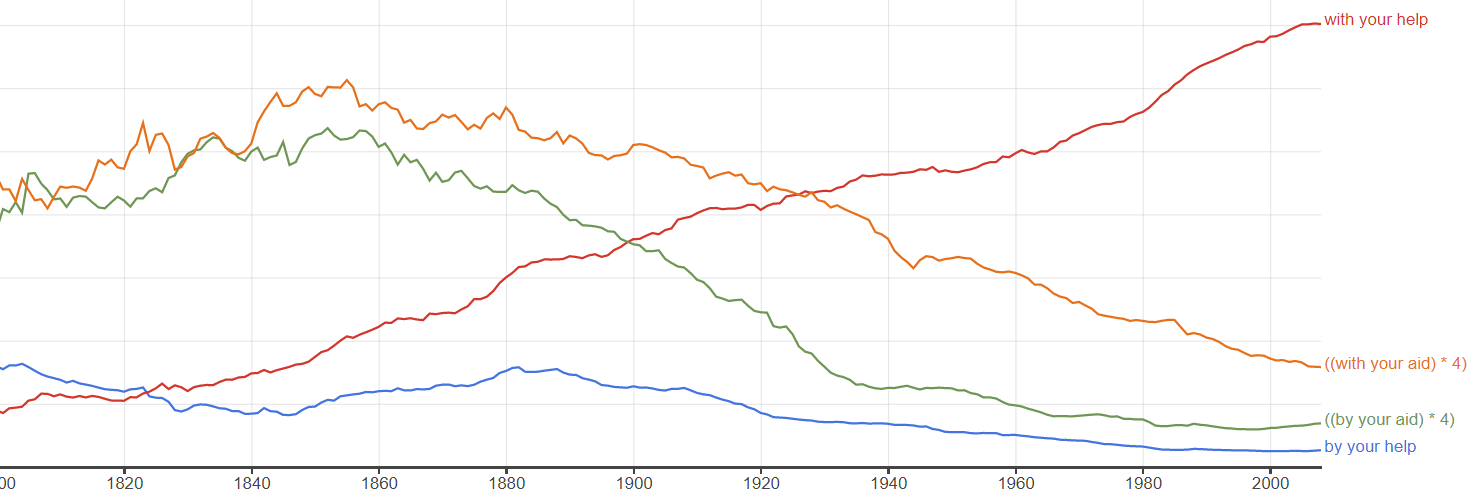This is a context where preposition usage has changed over time...

(I multiplied the aid values by 4 so one chart shows the same preference shift for both words at once.)
It's a risky business assigning precise and consistent meanings to English prepositions. In the specific context of linking a "result" (or method of achieving a result) to some relevant factor, by and with (plus through and possibly others) are "close enough". It's just that with is currently much more common for the exact context.
So you should note that the actual choice of preposition for OP isn't really a matter of semantics or grammar - it's just idiomatically established preference (which may slowly change). By further implication, although there will be some discernible patterns, the inconvenient truth is many of these idiomatically established usages simply have to be learned by rote (but not ...learned with rote! :). Just don't fall into the trap of assuming there's only one "correct" preposition for any given context (sometimes that's true, but often not).
Note that the specific fact of being "passive" doesn't affect OP's choice of preposition - exactly the same choice applies with all permutations of...
1: It was done [by / with / through] your [aid / help / assistance]
2: I did it [by / with / through] your [aid / help / assistance]

